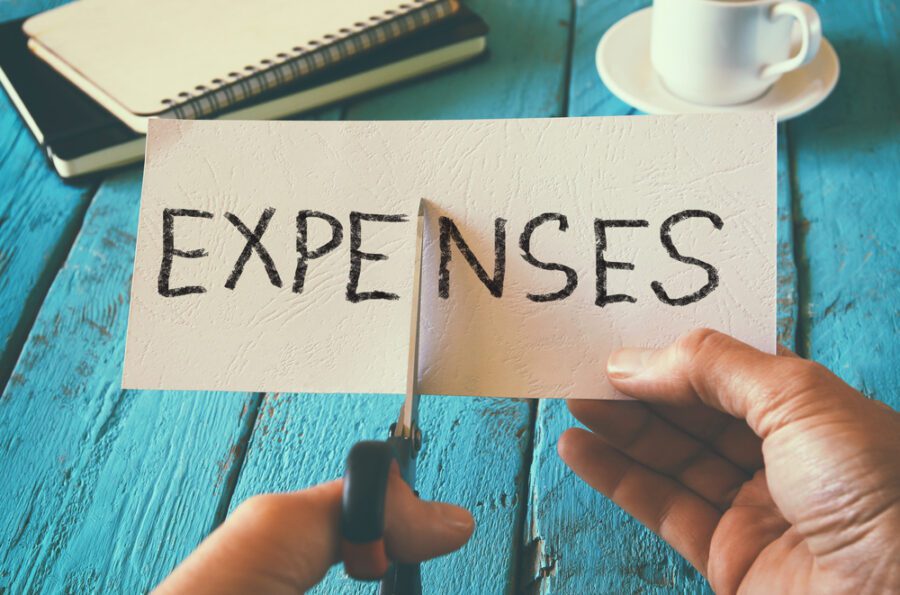Learn how to save money on health care!
Even if employers cover a good part of the costs, Americans still spend thousands of dollars on healthcare every year. This is why we want to help you learn how to save money on healthcare.
Premiums, copays, basic doctor visits, prescription drugs—you name it. This is how many of us end up paying large amounts of money for healthcare. This is something we need, and it might feel unfair to pay this much for things that are essential for your health and well-being.
Endless costs can become stressful quickly, and stress is the last thing a sick person needs in their life. It is essential to find out the best ways to save money on healthcare. So read on and discover all you need to know.

1. Always shop around
Let’s say you visited your doctor with a health problem, and they gave you a prescription. This is nothing unusual; it is something that happens to all of us from time to time. What are you doing next? Going to the drug store, right?
But this might not be the most effective strategy if you want to save money on healthcare. Entering the first pharmacy and getting your prescription from there can make you pay more than necessary.
What you can do instead is start calling around. Give a call to all of the pharmacies around you and see which one has the best prices. The same drugs can have totally different prices from store to store, so why not find the lowest price and buy your prescription there?
This move is definitely worth it, and another thing that can help you when you are looking for the best prices is the website called Healthcare Bluebook.
2. Look for generics
Again, when your doctor prescribes a drug, you can save money on healthcare by finding and buying the generic version of that drug. Consider that there are many plans where, once you want to buy the big brand names, they will charge you more money than needed.
What you can do is take the safe way and buy generic instead of brand-name ones. In case you need to buy supplements, you can talk with your pharmacist about this and ask them if there is any over-the-counter alternative. For example, for iron pills, vitamins, or medications for gastrointestinal problems, you can always find an OTC alternative.
3. Remain in the network
What we mean by this is to always stick to the network of your insurance plan. Try not to visit providers that are not part of this network because you will need to pay. If you have a PPO, also known as a preferred provider organization plan, you have a chance of receiving some kind of coverage from those healthcare providers that are out of your network.
If you want to save money on healthcare, avoid out-of-network providers if you have an HMO or health maintenance organization because you will definitely need to pay the full price for all of the services.
Hopefully, since 2022, the federal law says that the insurers have to cover the “surprise” medical bills at in-network rates. This happens when, in case of an emergency, the patient arrives in an out-of-network unit and gets medical care there. This is great since it offers some protection for these “surprise” bills.
4. Check out those preventive care services
When you have an insurance plan and you want to save money on healthcare, what you can do is get more info about preventive-care services and take advantage of them.
In most cases, the insurance company will cover these services for you even if you are not eligible for your deductible. These preventive-care services generally include screenings for depression and blood pressure levels, screenings for cholesterol and diabetes if you are in the risk group, immunizations, and mammograms for women older than 40.
Several chronic condition treatments, such as statins for heart disease and insulin for diabetes, may be covered by health plans with high deductibles before the policyholder’s deductible is met.
5. 90-day drug refills
Depending on your health and the conditions from which you suffer, you might need to take prolonged medication. In this case, you will need medication refills. This means more money for you to spend. But do you know there is a trick to save money on healthcare that you can use when you need to refill your medications?
Yes, if you have drugs that you need to take regularly, what you can do in order to save money is order 90-day drug refills. For example, if you want to buy your medications from Walmart, you need to know that they charge $4 for the 30-day supply if you don’t have insurance and if you want to buy generic medication. For the 90-day supply, they will charge $10. This is cheap, and in the long run, it can help you spend less.
Another good way to take advantage of the 90-day drug refills is to order the drugs online, as they are generally delivered as 90-day supplies. This can also save you some money.
6. Find the best prices for the lab tests
Maybe you need some lab tests or an MRI. Further investigations are a common occurrence when you visit your doctor’s office. But how can you save money on healthcare in this case? Is there anything you can do?
It is, and it is not complicated at all. The only thing you will need is some time, an internet connection, and a phone. Most of the time, your doctor will recommend a lab where you can take the tests, but this doesn’t mean they will have the best prices. Generally, you can find better prices out there, so if it’s not an emergency, why not give it a try?
Start by looking online for various facilities that offer the services you need and checking out each one until you find the most affordable prices. It might sound surprising, but the prices can vary even within a given ZIP code. The differences can be real, and some places are significantly more expensive than others for the exact same services and tests.

7. See if you can get financial assistance
Sometimes you might feel like you are not able to afford healthcare. The good news is that if your income is below a certain level, you might be eligible for financial assistance. This also applies if you meet other requirements, such as suffering from other conditions.
Also, be sure to understand how your plan’s coverage works. Get all the details, from deductibles and copays to out-of-pocket expenses. Try to find the best in-network providers and choose the best options to minimize the cost.
Find the hospitals that offer financial assistance programs if you have a low income. There are many charitable organizations that help with this, and you can check their websites and inquire about eligibility.
If you want to learn more about how to save money on healthcare, this book might help you: 101 Ways to Save Money on Health Care: Tips to Help You Spend Smart and Stay Healthy
You should also read: 6 Things You’ll Regret Keeping in a Safe Deposit Box










Thanks I have recently been looking for info about this subject for a while and yours is the greatest I have discovered so far However what in regards to the bottom line Are you certain in regards to the supply